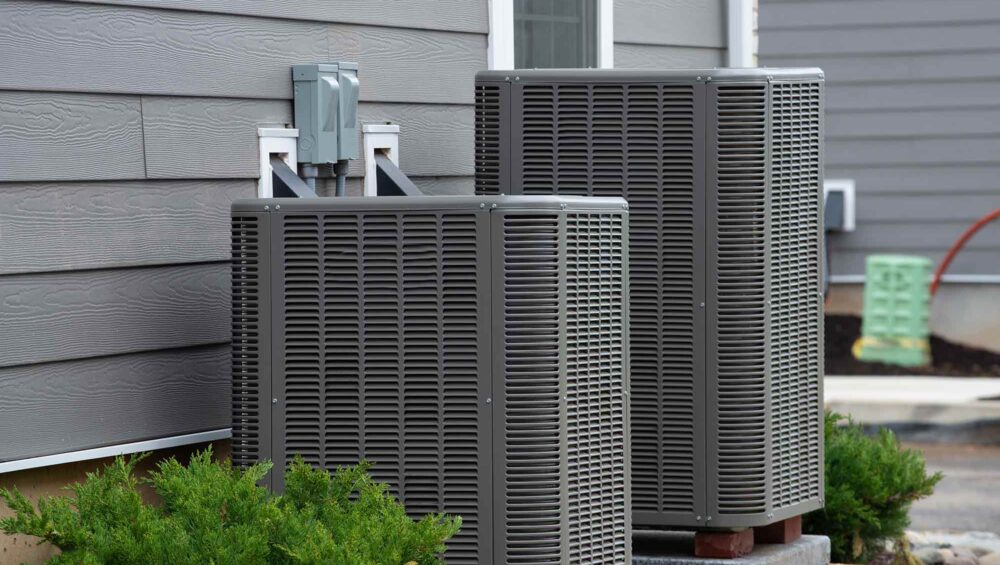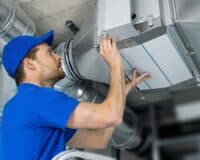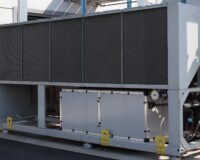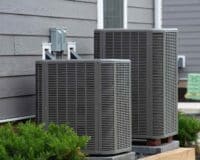Rhode Island summers can bring sweltering temperatures and oppressive humidity, making a reliable central air conditioning system essential for maintaining comfort and indoor air quality. However, like all mechanical systems, AC units have a finite lifespan and may eventually require replacement to ensure optimal performance and energy efficiency. Knowing when it’s time to replace your central air conditioning system can save you from unexpected breakdowns, costly repairs, and discomfort during the peak cooling season. In this comprehensive guide, we’ll explore the telltale signs that indicate it’s time for a central air conditioning system replacement in Rhode Island, empowering you to make informed decisions about your home’s cooling comfort.
Central Air Conditioning System Replacement Considerations
1. Age of the System
One of the most significant factors influencing the need for AC replacement is the age of the system. Most central air conditioning units have an average lifespan of 10 to 15 years, depending on factors such as maintenance, usage, and environmental conditions. If your AC system is approaching or exceeding this age range, it may be more prone to breakdowns, inefficiencies, and decreased performance. Investing in a new, energy-efficient AC system can not only improve comfort but also save you money on utility bills and reduce your carbon footprint.
2. Decreased Cooling Performance
As central air conditioning systems age, they may experience a decline in cooling performance due to wear and tear on components such as compressors, coils, and fans. If you notice that your home is no longer reaching the desired temperature or experiencing uneven cooling, it may be a sign that your AC system is struggling to keep up with demand. Additionally, if your AC unit runs continuously without achieving the desired temperature or cycles frequently on and off, it could indicate underlying issues that warrant replacement.
3. Rising Energy Bills
An inefficient or outdated central air conditioning system can significantly impact your energy bills, especially during the peak cooling season in Rhode Island. If you’ve noticed a steady increase in your energy bills despite consistent usage patterns, it may be a sign that your AC system is operating inefficiently and consuming more energy than necessary. Upgrading to a new, high-efficiency AC system can help lower your energy bills, reduce energy consumption, and provide greater comfort and control over indoor temperatures.
4. Frequent Repairs
As AC systems age, they may require more frequent repairs to address issues such as refrigerant leaks, compressor failures, or electrical malfunctions. While occasional repairs are normal, a pattern of frequent breakdowns or costly repairs may indicate that your AC system is reaching the end of its lifespan. Continually investing in repairs for an outdated or unreliable AC unit can be a costly and temporary solution. In contrast, replacing your AC system with a newer, more reliable model can provide peace of mind and long-term savings on maintenance and repair costs.
5. Outdated Technology
Advancements in technology and energy efficiency have transformed the HVAC industry in recent years, offering homeowners a wide range of innovative features and options for their central air conditioning systems. If your AC system is equipped with outdated technology or lacks modern features such as programmable thermostats, zoning capabilities, or variable-speed compressors, you may be missing out on opportunities to enhance comfort and energy efficiency. Upgrading to a new AC system with advanced features can improve performance, indoor air quality, and overall comfort in your home.
6. Excessive Noise or Vibration
Unusual noises or vibrations coming from your central air conditioning system can be indicators of underlying issues that require attention. If you notice loud or unusual sounds such as banging, rattling, or grinding coming from your AC unit, it could signify problems with components such as motors, fans, or bearings. Similarly, excessive vibration or shaking of the unit may indicate imbalanced or worn-out parts. While some issues may be repairable, recurring noise or vibration problems may warrant replacement of the entire AC system to ensure reliable and quiet operation.
7. Poor Indoor Air Quality
Your central air conditioning system plays a crucial role in maintaining indoor air quality by filtering out dust, allergens, and pollutants from the air. If you’ve noticed an increase in allergy symptoms, respiratory issues, or indoor air quality problems such as dust buildup or musty odors, it may be due to a malfunctioning or inefficient AC system. Upgrading to a new AC system with advanced filtration options such as HEPA filters or UV-C germicidal lights can help improve indoor air quality and create a healthier living environment for you and your family.
8. Inconsistent Humidity Levels
Proper humidity control is essential for maintaining comfort and preventing issues such as mold growth, moisture damage, and respiratory problems. If your central air conditioning system is unable to adequately control humidity levels in your home, it may be a sign of underlying problems with the unit’s sizing, operation, or functionality. Upgrading to a new AC system with integrated humidity control features can help regulate moisture levels and create a more comfortable indoor environment, especially during humid Rhode Island summers.
Central Air Conditioning System Replacement Conclusion
A central air conditioning system is a vital component of your home’s comfort and indoor air quality, particularly during the hot and humid summers in Rhode Island. By paying attention to signs such as age, decreased cooling performance, rising energy bills, frequent repairs, outdated technology, excessive noise or vibration, poor indoor air quality, and inconsistent humidity levels, you can determine when it’s time for a replacement. Investing in a new, energy-efficient AC system can provide reliable cooling, improved comfort, and long-term savings on energy bills, ensuring that you stay cool and comfortable year-round in your Rhode Island home.



